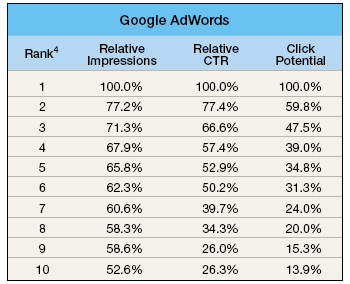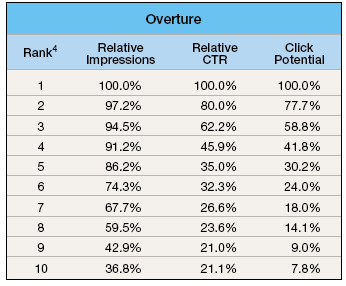At the NYC SES conference JupiterMedia stated that 5 out of 6 commercial purchases which originate from search originate from the free (or organic) side.
Recently Atlas DMT released a PDF report titled The Atlas Rank Report: How Search Engine Rank Impacts Traffic which showed how the clickthrough rates breakdown within pay per click ads.
(thanks to Danny)
Google AdWords PPC Clickthrough Rates

Overture PPC Clickthrough Rates

Overtures ad clickthroughs seem to drop significantly as you move down each position through their rankings, and their open bidding system means the bid prices are more likely to be near one another.
Google's customer delivery seems to drop a big amount from position 1 to 2 and then drops off slowly the rest of the way through. Positions 4 through 6 seem rather close to one another.
The fact that Google hides the bid price and the prices drop down significantly by position means that there is perhaps a wider range of ad positions that can provide a decent ROI on Google than on Overture.
In the future Atlas DMT intends to do conversion rate measurements (which are usually a bit higher as you move to lower ad positions) which will help give a better idea of profit potential by position, but there are many factors outside of bid position that can help determine the click through rate and profitability of your account.
Eventually more search engine marketing measurements will become more sophisticated, ignoring ROI and measuring profit elasticity.
I wonder how long it will be until some of the best PPC bid management software becomes a true comodity.


